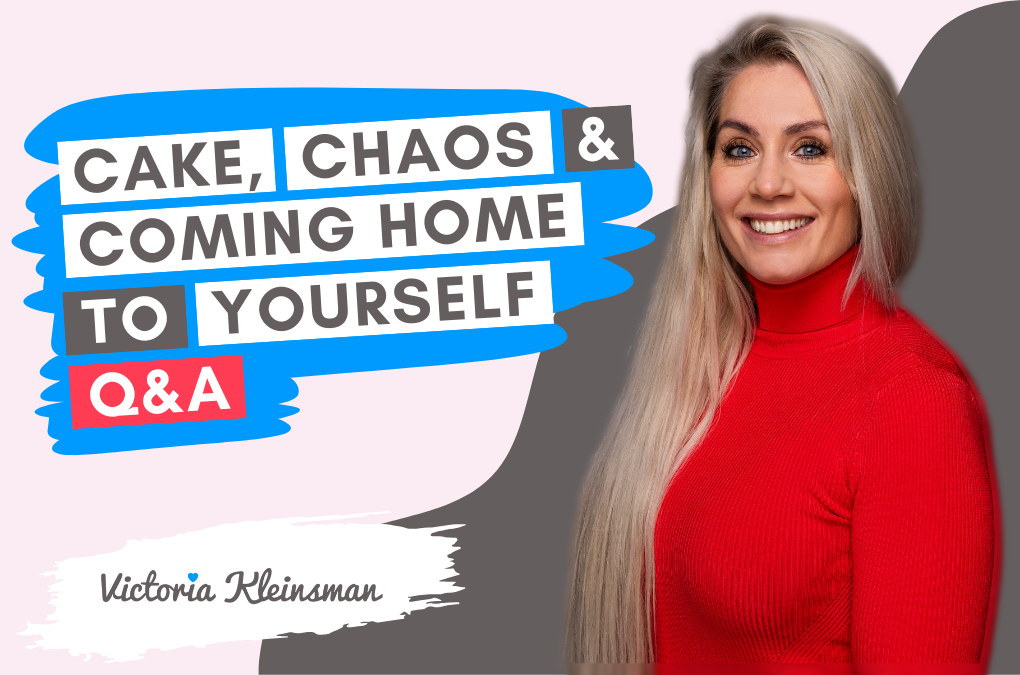Heidi Schauster, MS, RD, CEDS-S, SEP is a nutrition and body image therapist, Somatic Experiencing (SE)™ practitioner, clinical supervisor, and Embodiment Warrior who speaks and writes about whole-self wellness.
In this episode, Victoria interviews Heidi Schauster, a nutrition and body image therapist, about supporting children in having a healthy relationship with food and their bodies. They discuss how parents can model positive behaviours, keep conversations about food neutral rather than moralistic, allow children pleasure in eating, handle picky eating, encourage movement joyfully, and more. Listeners can expect to gain insight into fostering body acceptance and food freedom for the next generation.
Key Discussion Points
– How parents can support children in having a healthy relationship with food and bodies through positive modeling and neutral, non-judgmental communication (00:07:00)
– Setting reasonable limits around certain charged “trigger” foods if needed, while still allowing pleasure and food freedom (00:17:46)
– Letting kids tune into their bodies’ natural signals and self-regulation abilities around eating (00:23:53)
– Making physical movement a fun, family-oriented activity based on the child’s natural temperament (00:35:27)
– Signs that a child is struggling with food/body image issues and how to intervene and get professional support (00:36:43)
Key Quotes
“I think the more neutral and joyful and relaxed we can be around food with children, the better.” (00:07:15) “If the child is jumping up and down and saying, I want ice cream, to just say, we’re not going to have ice cream tonight, but we might have it later this week. And just nonchalantly, not not with a lot of emotion.” (00:17:46) “I would say that reaching out and letting them know that you are concerned is really, really important…the sooner, the better to actually let someone know that you’re concerned, and potentially bring in some help.” (00:36:43)
Connect with Heidi
https://www.anourishingword.com/the-book
https://www.anourishingword.com/
https://substack.com/@nourishingwords
@NourishingWords on IG/FB/Pinterest/LinkedIn
Nurturing Healthy Eating and Body Image in Kids
I recently had the pleasure of speaking with Heidi Schauster, a nutrition and body image therapist and author of the book “Nurture: How to Raise Kids Who Love Food, Their Bodies and Themselves.” Our conversation covered many important topics related to supporting kids in developing a healthy relationship with food and body image.
Modelling Positive Behaviors
One key point Heidi emphasized is that kids pick up on their parents’ habits and behaviours more than we realize. If we make disparaging comments about our own bodies, kids may internalize those messages about their own bodies. As Heidi explained, it’s confusing for kids when their primary role models have negative relationships with food or their bodies.
As parents and caretakers, it’s important we do our own personal work first when it comes to fully accepting ourselves and our bodies. By owning who we are, we can model self-acceptance for our kids.
Keeping Conversations Around Food Neutral
Heidi stressed the importance of keeping conversations about food neutral and joyful. With so much morality around notions of “good” and “bad” foods in our culture, it’s key we don’t pass judgement or guilt onto kids.
Restricting foods can backfire and lead to kids attaching even more emotion or rebellion around them. The more neutral we can be, the better for supporting self-regulation around all foods.
Making Peace with Picky Eating
It’s important to remember picky eating is very normal, especially with new flavors and textures. Forcing or sneaking in foods rarely helps. The key is to keep exposing kids to new foods positively and with patience.
Heidi suggested transparency about our own food journeys growing up. Sharing that “I didn’t like broccoli either as a kid” helps normalize picky eating. Over time with more exposure, previously disliked foods often become favorites.
Supporting Body Acceptance
Promoting body acceptance and neutral language is just as important as with food. Appreciating what our bodies can do versus focusing on appearance is a healthier message.
Heidi emphasized our bodies are just one aspect of our whole, multifaceted selves. The less importance we place on weight, shape or looks, the freer kids feel to embrace all parts of themselves.
Conclusion
As Heidi wisely summarized, “The more we can be neutral and accepting and comfortable in our own skin…the better.” By doing our personal work first, keeping conversations around food and bodies relaxed, and trusting in our kids’ innate wisdom, we help the next generation develop a nourishing connection to themselves.
What part of our conversation stood out to you? What is one small shift you might make after reading this? I welcome your thoughts in the comments!





